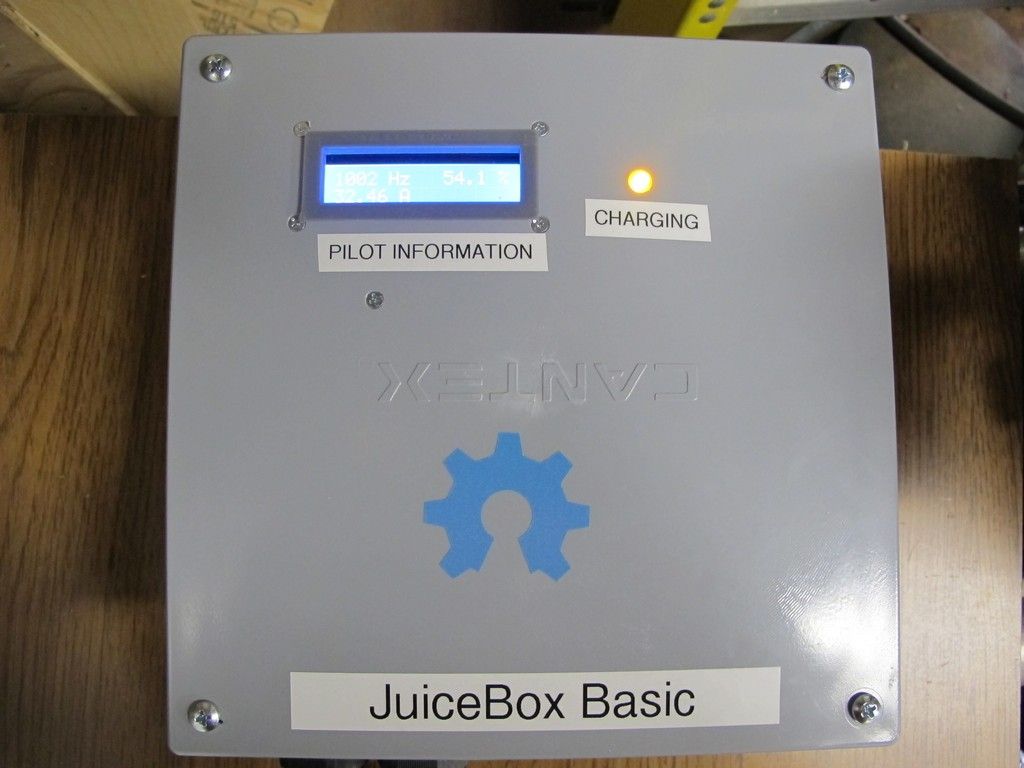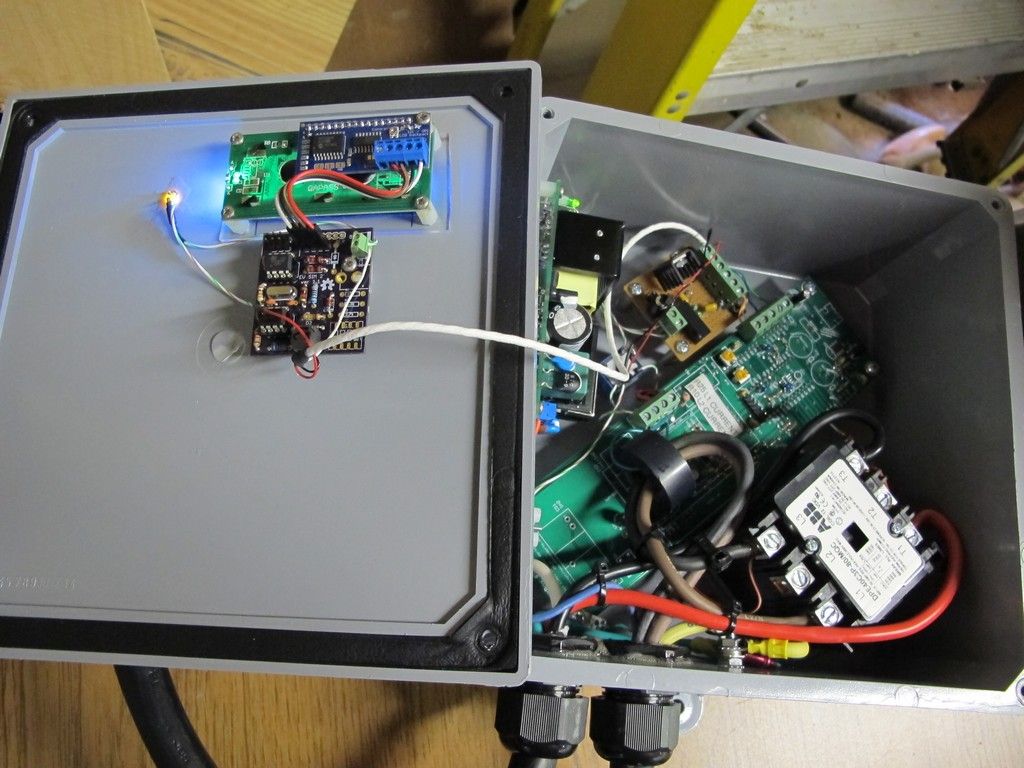have A JuiceBox Basic 32A EVSE for sale.
This unit is enhanced with a Nick Sayer EV Sim II reading the Pilot and a Charging LED.
This unit is constructed in a heavy duty 8X8X4 inch junction box. This has a JuiceBox Basic EVSE board with a couple of added terminal blocks, a power supply board, a 12V power supply and a 50A 12V contactor. The input is by a 40A range cable with a molded 14-50 plug. The output J1772 cable is a used Rema 16 ft cable part number Rev -1 30C Type 3R.
Both L1 and L2 current is adjustable. L1 is set to 12A and L2 is set to 32A. The L2 max is 59A but the cable is only good for 32A The input cable has #8 conductors and the JJ1772 cable has #10 conductors. This unit charges my 2013 Leaf at 27A with no heating.
I purchased the main board to verify that it meets its claimed specifications and that it is safe.
From my tests it is a good no frills basic unit.
I am selling this ASIS but I guarantee it will work upon receipt. The price is $300 plus $25 for USA shipping. Local pickup in Anaheim is available. Payment is cash for local pickup or Paypal if I ship the EVSE.


This unit is enhanced with a Nick Sayer EV Sim II reading the Pilot and a Charging LED.
This unit is constructed in a heavy duty 8X8X4 inch junction box. This has a JuiceBox Basic EVSE board with a couple of added terminal blocks, a power supply board, a 12V power supply and a 50A 12V contactor. The input is by a 40A range cable with a molded 14-50 plug. The output J1772 cable is a used Rema 16 ft cable part number Rev -1 30C Type 3R.
Both L1 and L2 current is adjustable. L1 is set to 12A and L2 is set to 32A. The L2 max is 59A but the cable is only good for 32A The input cable has #8 conductors and the JJ1772 cable has #10 conductors. This unit charges my 2013 Leaf at 27A with no heating.
I purchased the main board to verify that it meets its claimed specifications and that it is safe.
From my tests it is a good no frills basic unit.
I am selling this ASIS but I guarantee it will work upon receipt. The price is $300 plus $25 for USA shipping. Local pickup in Anaheim is available. Payment is cash for local pickup or Paypal if I ship the EVSE.


